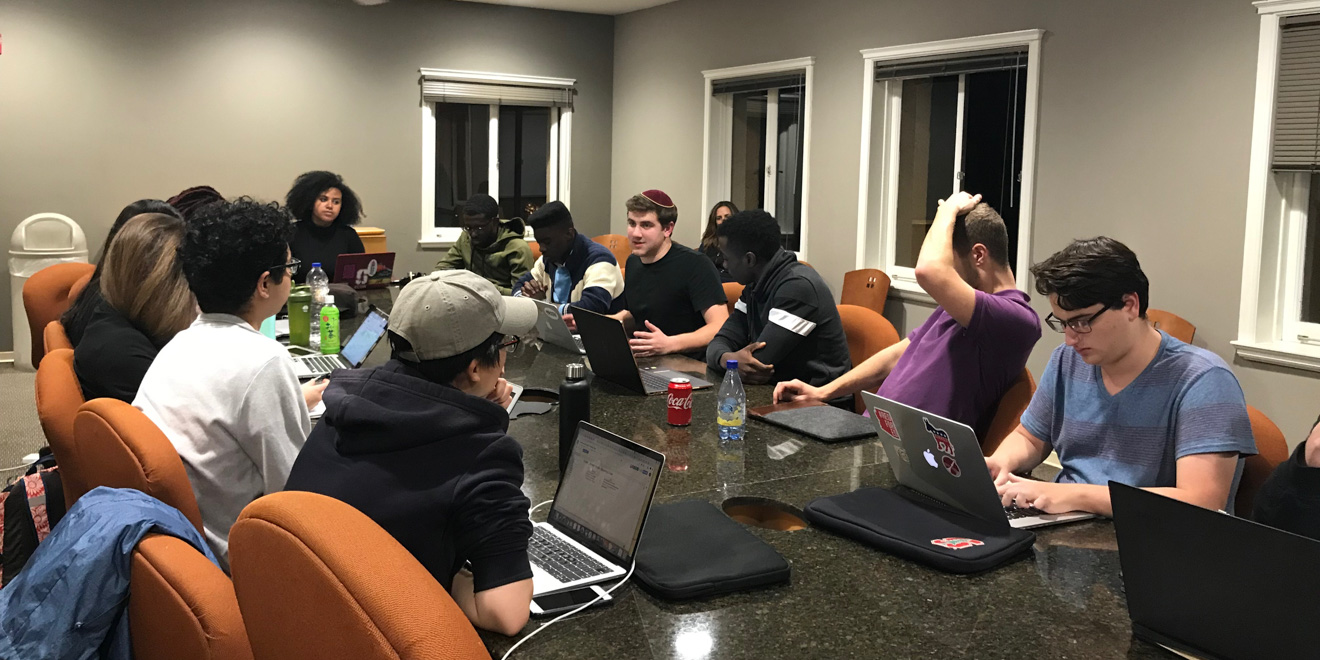At the 11th meeting of the 20th Undergraduate Senate, Senators discussed a bill proposed by Senator Matthew Wigler ’19 that would replace the Cardinal Conversations program with a new program called “Deliberative Dinners.”
Wigler’s bill aimed to reshape the Cardinal Conversations program, a speaker series designed to bring outside experts with diverse political views to campus. Cardinal Conversations came under fire last year for hosting non-diverse speakers and speakers with racist views. In September, Provost Persis Drell announced changes to the structure of the program, including overhauling the leadership structure and process for inviting speakers to participate.
Wigler’s bill aims to reshape Cardinal Conversations around six themes which he deems crucial to deliberative communication: community, conversation, continuity, inclusion, equality and accountability. Wigler feels Cardinal Conversations is failing on all six crucial principles.
“Stanford is a place where I’ve had some of the best conversation of my life and also heard about some of the worst speeches of my life,” Wigler said.
Wigler’s bill would allow 30 to 40 undergraduate students, with a focus on freshmen, sophomores and juniors, to have weekly dinners over the course of a quarter, during which they would engage in debate facilitated by trained student or faculty moderators. Students would be incentivized to participate potentially through academic credit as well as the free meal.
“The University is absolutely right that there’s a problem with polarization; it’s just we’re currently pursuing that in a problematic way,” he said, “I would rather see the University devote its resources to a program that has student buy-in, student support and is actually designed around these principles that will facilitate real conversation.”
Following Wigler’s proposal, senators debated the details of the bill’s execution. Some, while complimentary of the idea itself, viewed a Senate bill as an incomplete way of creating the program.
“So to be clear, this [bill] actually doesn’t create anything, it’s just a statement that we want to do something down the line,” Senator Gabe Rosen ’19 said. “Is there a reason we need a bill to do that, and we can’t just divert some discretionary money to creating the program as a prototype … to actually experiment and prove it?”
Nanci Howe, the Student Activities and Leadership Director, echoed Rosen’s point.
“I don’t think you need a bill, I think you need a better proposal,” she said. “The University cannot respond to just an idea; they need an actual concrete proposal.”
Howe also expressed that the University is generally supportive of the idea of deliberative student discussion but that “the ‘how’ to do it well and thoughtfully is really hard.”
Wigler responded saying the proposal is “intentionally vague” and should just serve as an initial step in an ongoing conversation with the University in working out the specifics of the program.
The discussion extended into Open Forum as senators voiced concerns about the precedent that passing an “intentionally vague” proposal would set.
“I’ve seen Senates where we end up just passing something because it’s a cool idea, and then nothing else really happens because no one’s picked up the ball on either end,” Rosen said. “I’m just concerned about setting the precedent of just jumping into things without really fleshing out the ideas.”
The Senate agreed to review the bill and reach out to other resources before deciding on the exact form of Deliberative Dinners.
The Senate also discussed collaboration with the Sophomore Class Presidents on art and wellness workshops, reminded everyone that applications for Standard Grants close next Friday at 11:59 p.m. and that the “Meet the Senators” event is scheduled for next Thursday.
Wigler closed the meeting with a brief comment on the shooting in Pittsburgh on Saturday, mentioning a resolution he’s working on for the next Senate meeting that would create an ad hoc committee of students, alumni and faculty to investigate anti-Semitism on campus.
“I feel like this is the time to really heal collectively and to be an ally,” Rosen said. “It’s not just about us; it’s a hatred that knows no borders and knows no labels. It’s a hatred that we all have to team up to fight together.”
Contact Zora Ilunga-Reed at zora814 ‘at’ stanford.edu.
